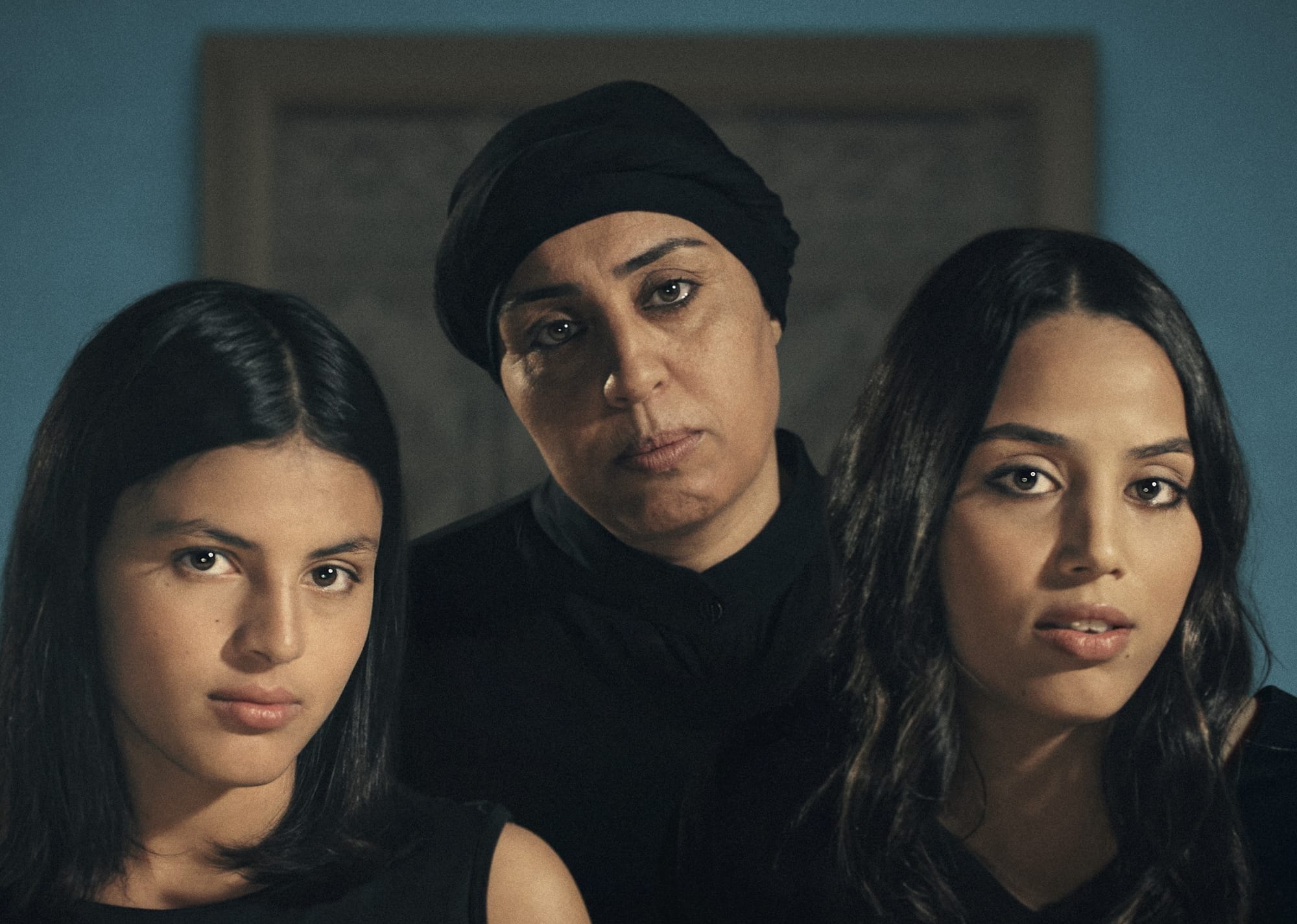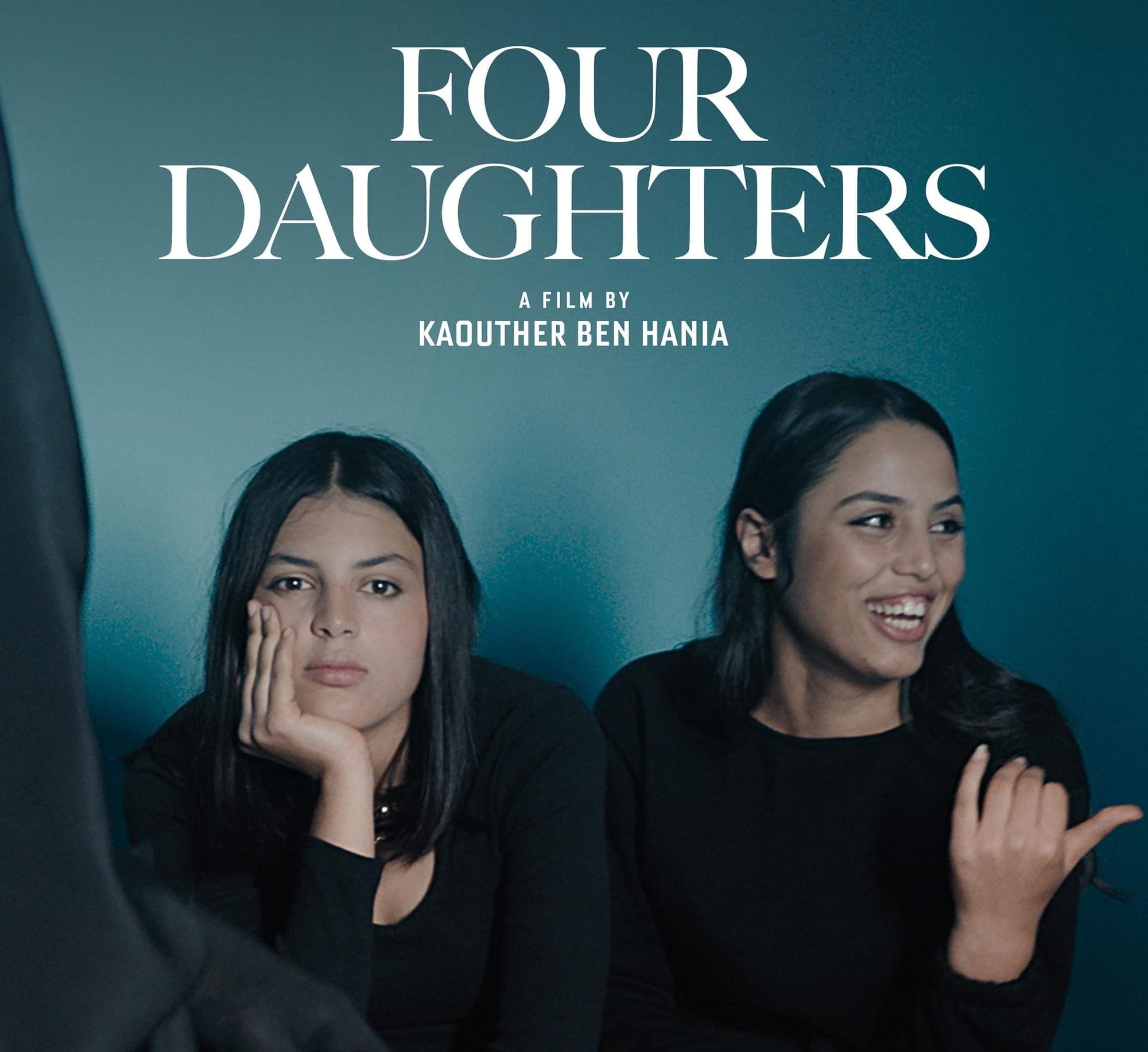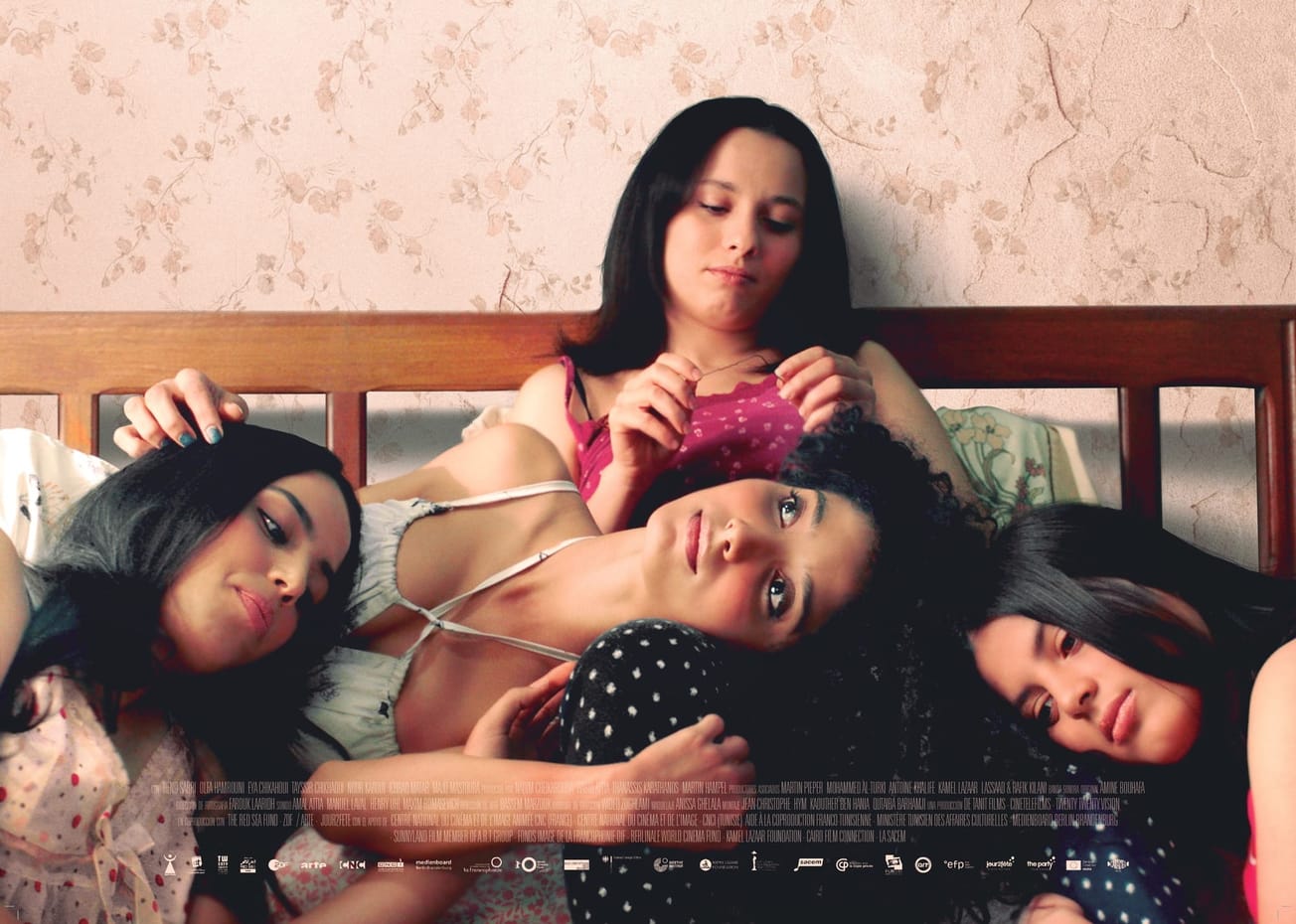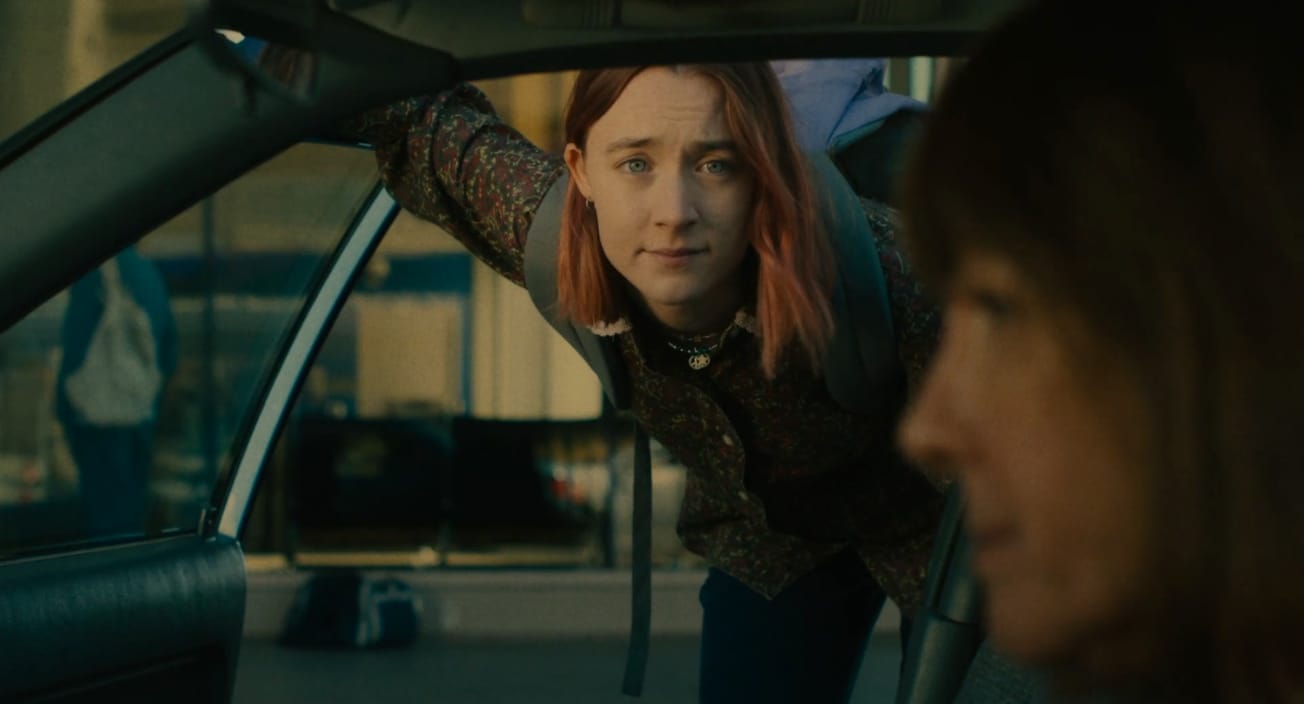By Gaby Turner, History and Spanish, Fourth Year.
After premiering at last year’s Cannes film festival, Four Daughters (2023) has arrived in UK cinemas just as director Kaouther Ben Hania’s becomes the first Arab woman to achieve two Oscar nominations. This monumental film reconstructs the lives of Olfa Hamrouni and her daughters in the period before the eldest two, Ghofrane and Rahma Chikhaoui, ran away to join Islamic State fighters. It is the story of nation and family intertwined as coming of age is set against a turbulent period of Tunisian history.
For Olfa’s daughters, coming of age meant grappling with repressive codes of femininity and avoiding the traps of generational trauma. A string of metaphors brings these things into focus in a film that does not shy away from symbolism. Hair is covered up and ripped out, a manifestation of rebellion and control, of sexuality and sin, whilst Olfa describes how she feared becoming the cat who eats her own babies. It is a recognition of her own culpability in her daughters’ disappearance as the film opens with the message of Rahma and Ghofrane ‘eaten by the wolf’.

The recurring symbol of mirrors foregrounds the self-reflexive function of the film and cinema itself. Through its framing, Olfa and her remaining daughters, Eya and Tayssir, frequently gaze out at the viewer, posing and applying lipstick, as if the screen were a mirror. But most strikingly, we see Olfa constantly interrogated by her own double, played by actress Hend Sabry. Yet, a film that sings with metaphors manages to be so raw and real, a testament to the safe and confessional space Ben Hania creates.
Four Daughters is a heartbreaking and beautiful portrayal of adolescent sisterhood beginning at its own tragic end. Though worlds and genres apart, in many ways, it resembles Sofia Coppola’s The Virgin Suicides (1999); both stories’ superficially approach their characters’ motivation, only making us more aware of the absent presence. In fact, the film highlights the fruitlessness of asking ‘why?’; the girls seem condemned from the start by absent and abusive parents, their own beauty, and as Ben Hania says in an interview with BBC Culture, their vulnerability as girls in ‘this place with monsters’. Her initial ‘why’ question appears abandoned in the turn from fly on the wall documentary to what she loosely defines as ‘meta-documentary’. Instead, Ghofrane and Rahma’s decisions are justified by the desire to escape Olfa’s tyranny, but never understood. After all, the radicalised daughters preach a repackaged version of Olaf’s own patriarchal discourse. Importantly, the meta-documentary format grants Eya and Tayssir the agency to tell their story as they would like whilst male characters are reduced to their gender, comically all played by Majd Mastoura.

As well as refusing a rigid format, the film refuses definitive moral judgement. Paradoxically, Tayssir finds it impossible to hate those who have hurt her, whilst Eya cries for her sisters despite claiming she cannot. Abuse is normalised in the chain or generational trauma which underpins the film, and Olfa takes pride in the aggressive femininity she transmits to her children, recounting her own assumption of performative masculinity to protect her mother and sisters. In fact, any hard and fast judgements on morality come from outside of the family, from Sabry’s interjections. For better or for worse, family blurs the binary of morality.
The film is undeniably carried by the warmth and laughter of the sisters. As the girls interact, the soundscape is periodically flooded with laughter, girlish chatter, and folk songs. You find yourself forgetting the fictionalisation of this family. Their relationship is a respite from the opposing forces of the dominant mother and radical Islamic State. Eya and Tayssir joke about sexuality, their missing sisters, and their brief brush with conversion. The ability to bring laughter to tragedy is a true show of strength from the sisters, a glimmer of hope that the chain may be broken. After all, Eya defiantly claims: ‘This family that has destroyed you, I won't let it destroy me’.
Have you seen Four Daughters







